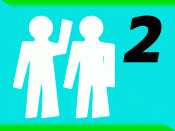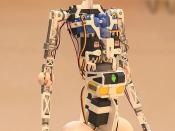Proposition: Human Cloning Should Not Be Banned.
The news of the successful cloning of an adult sheep, in which the sheeps DNA was inserted into an unfertilized sheep egg to produce a lamb with identical DNA, has generated an outpour of ethical concerns. These concerns are not about Dolly, the now famous sheep, nor even about the considerable impact cloning may have on the animal breeding industry, but rather about the possibility of cloning humans. For the most part, however, the ethical concerns being raised are exaggerated and misplaced, because they are based on erroneous views about what cloning is and what it can do for people today. The danger, therefore, lies not in the power of the technology, but in the misunderstanding of its significance in our world today. We, as a society that is always advancing, need to use cloning to advance our research in animal testing, infertility and the most important, disease research and possible cures.
As the status quo stands, cloning of humans has a ban. I am advocating a change. We need this change to be able to make new scientific breakthroughs in many health issues. Animal testing, infertility, and the cure of diseases are a problem that we battle everyday. These are the most talked about issues that scientists feel that they can change if given the opportunity to start the human cloning process. Even though cloning can bring so many scientific breakthroughs, people that are obviously not well informed, argue that cloning is wrong. If we look at the big picture, the pro?s of cloning out way the con?s dramatically. More knowledge equals a more understanding of cloning. To do this we must start with the basics.
What is cloning? How did it get started? Well, it is like this. A clone is...



Genetics
This essay is great. It provides a persuasive base and addresses both sides of the topic.
5 out of 6 people found this comment useful.